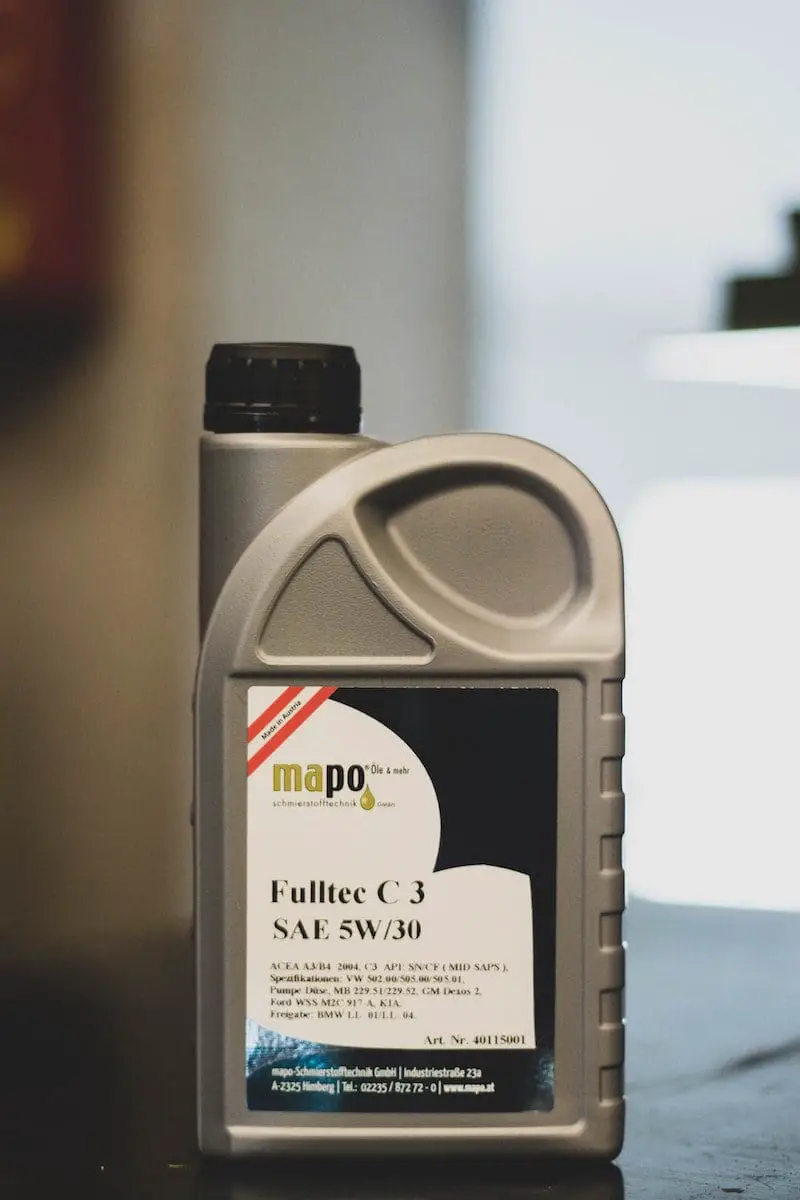5W20 and 5W30 are both types of motor oil, differing primarily in viscosity. 5W20 is thinner and offers better fuel economy and cold-start performance, ideal for newer engines or those in colder climates. On the other hand, 5W30 provides better protection in high temperatures and older engines with more wear, albeit with slightly reduced fuel efficiency compared to 5W20.
Key Takeaways
- 5W20 and 5W30 are both types of motor oil used in cars.
- 5W20 is thinner and provides better fuel economy, while 5W30 is thicker and provides better engine protection.
- 5W20 is recommended for newer cars, while 5W30 is recommended for older cars or those with high mileage.
5w20 vs 5w30
The difference between 5w20 and 5w30 is that 5w20 is used in colder climates as it is less dense and flows faster, while 5w30 is used in summers or warm places as it flows slower.

Comparison Table
| Feature | 5w20 | 5w30 |
|---|---|---|
| Viscosity at Operating Temperature | Thinner | Thicker |
| Fuel Economy | Generally better | Generally slightly lower |
| Cold Start Performance | Better flow, easier engine cranking | May have slightly less flow in very cold weather |
| Wear Protection | May be slightly less at high temperatures | May be slightly better at high temperatures |
| Manufacturer Recommendation | Widely recommended for modern engines | May be recommended for older engines or specific driving conditions |
What is 5w20?
5W20 motor oil is a type of lubricant specifically formulated for internal combustion engines. The “5W” designation indicates its viscosity characteristics, with the “5” denoting its flow characteristics in cold temperatures and the “20” indicating its flow characteristics at operating temperatures.
Performance and Application
This oil is engineered to be relatively thin, especially at lower temperatures, which aids in easier cold starts and reduces friction during initial engine operation. It is recommended by manufacturers for newer engines, as its low viscosity can help improve fuel efficiency and minimize wear on engine components. Additionally, 5W20 oil provides adequate protection against corrosion and sludge buildup.
Considerations and Compatibility
While 5W20 oil offers benefits such as improved fuel economy and enhanced cold-start performance, it may not be suitable for older engines or those operating in extreme temperatures. In such cases, a thicker oil like 5W30 or higher viscosity grades might be more appropriate to provide better engine protection. It’s crucial to consult your vehicle’s manual or a trusted mechanic to determine the most suitable oil viscosity for your engine’s needs and operating conditions.

What is 5w30?
5W30 motor oil is a type of lubricant designed for use in internal combustion engines. The “5W” designation refers to its viscosity characteristics, with the “5” indicating its flow properties in cold temperatures and the “30” indicating its flow properties at operating temperatures.
Performance and Application
This oil is formulated to provide a balance between viscosity and engine protection. It is slightly thicker than 5W20, offering better protection against wear and tear, especially in high-temperature conditions. 5W30 oil is commonly recommended for older engines or those operating in warmer climates where thicker oil is necessary to maintain proper lubrication and prevent engine overheating.
Considerations and Compatibility
While 5W30 oil may provide enhanced engine protection compared to 5W20, it may also lead to slightly reduced fuel efficiency due to increased viscosity. However, for engines with higher mileage or those subjected to harsh operating conditions, the benefits of improved protection outweigh the minor decrease in fuel economy. As with any motor oil selection, it’s essential to consult your vehicle’s manual or seek advice from a qualified mechanic to ensure compatibility and optimal performance.

Main Differences Between 5w20 and 5w30
- Viscosity:
- 5W20 is thinner than 5W30.
- 5W20 offers easier cold starts and slightly better fuel efficiency due to its lower viscosity.
- 5W30 provides better protection in high temperatures and older engines due to its slightly thicker viscosity.
- Application:
- 5W20 is recommended for newer engines or vehicles in colder climates.
- 5W30 is commonly used in older engines or engines operating in warmer climates where thicker oil is needed for proper lubrication and heat resistance.
- Engine Protection:
- 5W20 may offer sufficient protection for newer engines and help minimize wear on engine components.
- 5W30 provides enhanced protection against wear and tear, especially in high-temperature conditions, making it suitable for engines with higher mileage or subjected to harsh operating environments.

I’m impressed by the thorough comparison between 5w20 and 5w30. This article has given me a lot to consider when deciding which oil to use.
Absolutely, the decision to use 5w20 or 5w30 should be well-informed. This article does an excellent job of explaining the differences.
I’ve always been confused about whether to use 5w20 or 5w30. This article is very insightful and has clarified the matter for me.
I’m glad to see that this article has been helpful to others as well. The clarity provided here is truly valuable.
It’s great that this article provides such clear and unbiased information. Now I feel well-prepared to make an informed choice.
This comprehensive comparison of 5w20 and 5w30 is an excellent resource for anyone looking to make informed decisions about car maintenance. Kudos to the author!
I couldn’t agree more, John. The author provides all the necessary details for readers to understand the topic thoroughly.
The detailed analysis of 5w20 and 5w30 is a testament to the quality of information provided by this article. It has certainly enriched my understanding of motor oils.
Such valuable insights are not easy to come by. This article is a commendable resource for anyone interested in car maintenance.
I’ve already begun to rethink my approach to choosing engine oil. This article has been truly enlightening.
Incredible! This article provides exceptional insights into the differences between 5w20 and 5w30. It’s a must-read for anyone invested in maintaining their car’s engine.
I’ve always used 5w30 but now I’m considering switching to 5w20 based on the points made in this article. Very informative, thank you.
You should definitely give it a try, Jason. The information here is quite persuasive.
I’ve been thinking about the same thing! Let’s do some more research and compare experiences.
What a valuable insight into the differences between 5w20 and 5w30. I appreciate the excellent comparison and detailed information provided.
This will definitely influence my future oil choices. I’m grateful for this detailed analysis.
This detailed comparison is a fantastic example of the author’s expertise in the field of car maintenance. It’s an invaluable resource for everyone seeking to understand the differences between 5w20 and 5w30.
I wholeheartedly agree, Tara. The depth of knowledge conveyed in this article is truly impressive.
Thank you for this extensive comparison of 5w20 and 5w30. Very informative and helpful.
I completely agree. This is essential information for anyone who takes car maintenance seriously.
This is a matter of great importance when it comes to car maintenance. The detailed information provided here is truly valuable.